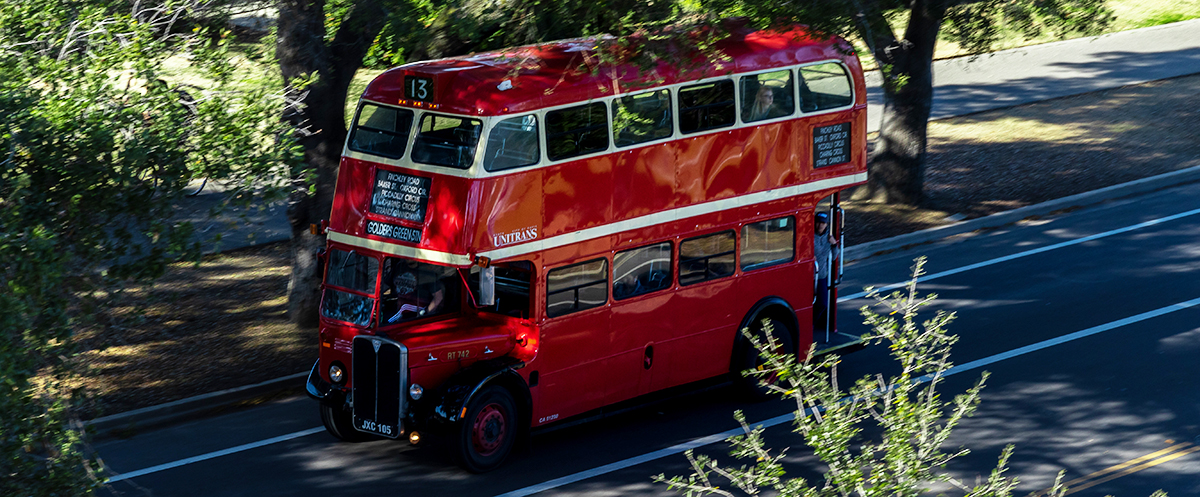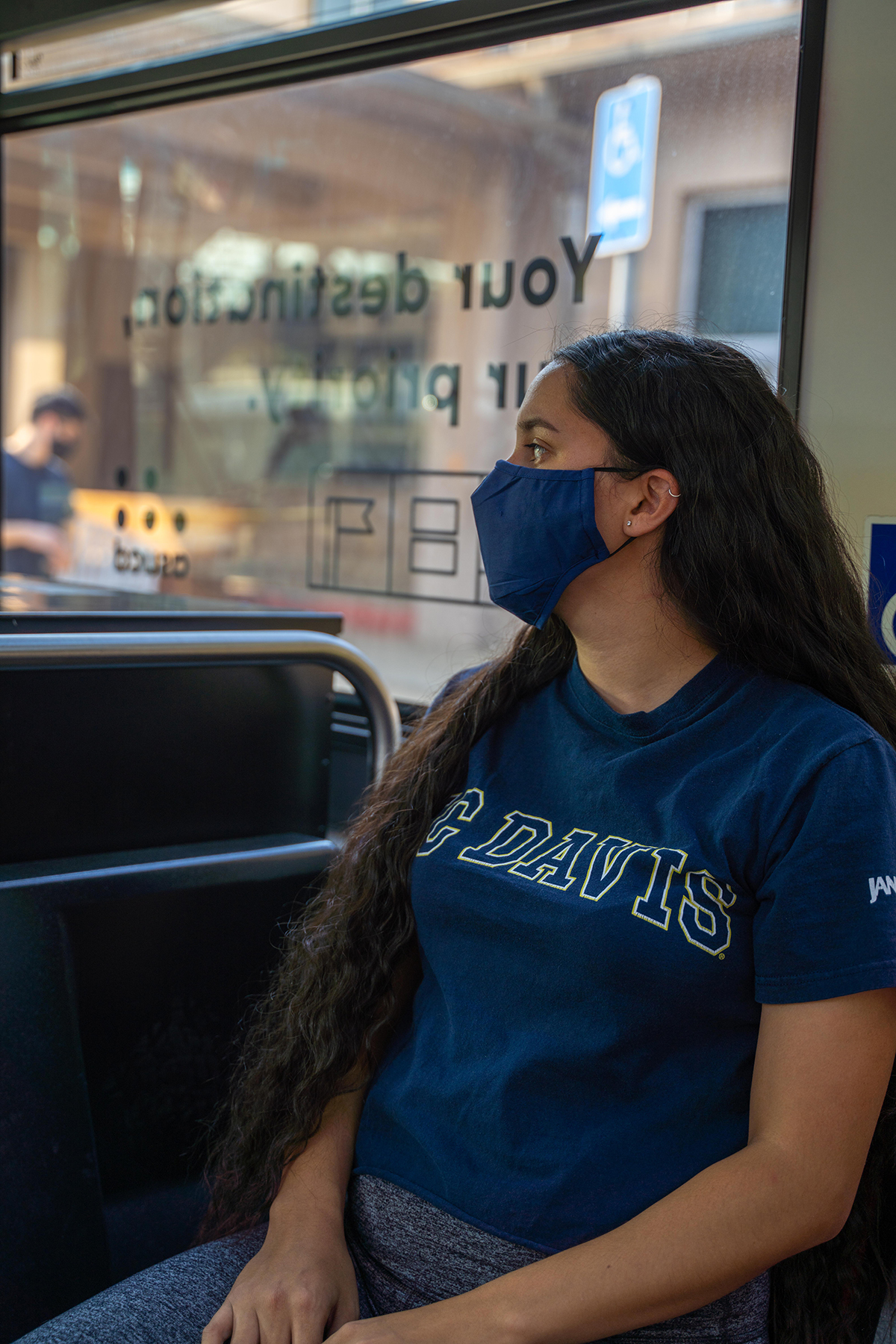
UC Davis Awarded Grant to Add Electric Buses
ASUCD Unitrans is five buses closer to its goal of funding 14 battery electric buses as the first major milestone on the way to full electrification of its fleet. The Federal Transit Administration last month awarded the city of Davis $3.76 million through its 5339 Bus and Bus Facilities grant program. That funding, passing from the city to UC Davis, will cover 80 percent of the purchase price for five battery electric buses, with the remaining 20 percent provided by student fees, and bring the total number of funded buses to 11 of the 14-bus target.

(Salvatore Opipari/Aggie Studios—UC Davis)
Electrifying the fleet
The first five to six buses are expected to begin service for fall 2021. Full electrification of the transit system’s 47-bus fleet and supporting infrastructure is a joint venture of the campus and city, reflecting shared priorities around sustainability and shared effort, and is slated for completion by the early 2030s.
As part of the multi-phased process, the current fleet of compressed natural gas-fueled buses will be replaced as they reach retirement age on a one-for-one basis with the quieter, cleaner battery electric vehicles. The conversion to a fully battery electric fleet will reduce emissions — and save money — over the lifetime of the bus. The Causeway Connection, a partnership between UC Davis, the city of Sacramento, Sacramento Regional Transit and Yolobus, already deploys 12 electric buses providing express shuttle service between the Davis and UC Davis Health campuses.
Benefits for the environment and the bottom line
Another recent grant from the Sacramento Area Council of Governments (SACOG) will help enable ASUCD Unitrans to make improvements to its maintenance facility. Upgrades to the facility, known to staff as “The Pad,” will include repaving, landscaping and installation of electrical infrastructure for the initial batch of 14 buses, as well as laying the groundwork for future electrification.
“It’s very exciting to see Unitrans continue to innovate sustainably,” said Camille Kirk, director of sustainability and campus sustainability planner for UC Davis. “Sustainability on a college campus requires that we strive for environmental protection, social equity and climate justice, and financial stability, all while also connecting back to our teaching and research mission. Unitrans’ electrification efforts hits on all aspects—not only will the buses be fueled by renewably produced electricity to lower greenhouse gas emissions, but they also reduce air pollution, provide new opportunities to learn about operation of an electric bus fleet and will reduce costs."

Jeff Flynn, general manager of ASUCD Unitrans, is also encouraged by the major step forward. Highlighting the strength of the town and gown partnership Unitrans represents, he sees fleet electrification as a key piece in realizing shared environmental objectives and “making sure we are helping save the planet together.”
Next stop

ASUCD Unitrans continued to operate through the summer and the campus disruptions caused by the coronavirus, providing an essential transportation service to members of the campus and city communities.
Measures have been put in place to facilitate physical distancing on bus routes, along with cleaning procedures, and 150 Unitrans staff have continued to drive, fix, manage and oversee buses daily. Flynn is proud of his team. “I can’t speak highly enough about our staff,” he said. “This is a feel-good moment for us.”
About the author
Nathaniel Sellman, Content Specialist for Student Affairs Marketing and Communications.